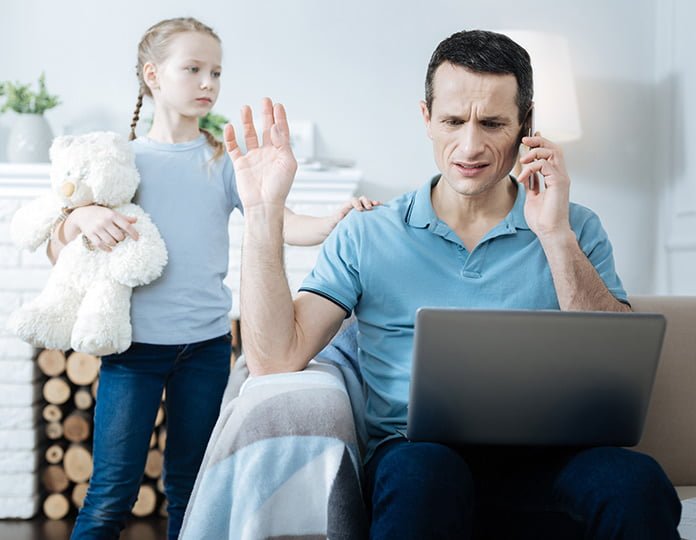UNICEF India recently released an article highlighting the importance of self-care for parents. Since June is also Parenting Month, along with Pride Month, it is necessary to be aware and thank our parents for their lessons.
Though not all families may be perfectly functioning, still appreciating the little things your parents have done for you may brighten up their day. These actions could be your mom calling you whenever you’re home late or your dad sharing his teachings. If you are a parent yourself, you know the task of raising a child or even a pet may not be an easy one. UNICEF India recognizes that it is hard for parents to take care of themselves or make themselves a priority in their life. Putting oneself up may be viewed as selfish. But it isn’t. Self-care is not selfish.
Here are reasons why self-care isn’t, how UNICEF is supporting parents and self-care advice for parenting month out there.
Why Self-Care is Necessary?
A crucial component of our physical and mental well-being is our mental health. The assistance you provide for your child’s mental health as a parent is extremely important. Fostering and loving care builds a solid foundation for your child’s social and emotional development, giving them the tools, they need to live a happy, healthy, and fulfilling life.
Parents have an impact on how adolescents interact with the social, familial, and community and how these influences their development. Positive parenting can lessen the detrimental effects of negative external circumstances on children’s development. For instance, through monitoring friendships, parents may be able to encourage their adolescent kids to form supportive ties with their peers. Connection, security and supportive relationships are critical protective factors for the mental state of the child in future. Hence, these all can be achieved only when the parent is in a proper mental state themselves.

If parents are not able to take care of themselves, this can negatively other aspects of their life as well. It can pose significant risks to children’s development due to improper support systems, sudden aggressiveness, pressure and control, lack of communication and financial instability. Hence, the UNICEF India campaign page aims to provide expert recommendations and resources to support the mental health of both you and your child.
The UNICEF Parenting Month Campaign
To assist parents and carers worldwide in carrying out the most important work of all—raising their children—UNICEF aspires to be a trusted partner.
According to UNICEF, one of the important aspects of this campaign is strengthening integrated services for early childhood development (ECD). Thus, to increase parents’ and caregivers’ access to ECD services and to raise their access to the service providers who support them; UNICEF has decided to collaborate with governments, corporations, civil society organizations, academic institutions, and other partners to bring awareness about the mental well-being of parents.
They have also decided to introduce evidence-based interventions to assist caregivers in both of the following ways:
- Training them with skills to aid in nurturing the care of their children
- Enhancing the caregiver’s mental health and emotional well-being
These two strategies were implemented based on the thought that by assisting caregivers with support and teaching them skills to cope with stress, they may improve their mental health. Thereby, they will be better able to care for their children.
Empowering Parents and Caregivers
With information on what infants and young children need and how to offer it, UNICEF’s parenting tools and Early Childhood Development (ECD) programmes aim to equip parents and other caregivers to provide their children the best possible start in life. They seek to increase awareness, give parents and communities more authority, create a need for ECD services, and give parents’ views more weight.
They even help in identifying, preventing and managing the needs of children with disabilities. In addition, they incorporate positive gender socialization and set norms that promote gender equality from the beginning of the child’s life, so the child will be able to have a solid foundation. Hence, through these measures and family-friendly policies introduced by UNICEF parents and caregivers may be able to meet their children’s needs while making a living.
This is possible because these policies include paid parental leaves for both parents, breastfeeding support, good quality childcare services which are both accessible and affordable, child benefits and adequate wages.
Self-Care Advice for Parents
Now that we see why as a parent your well-being is important and UNICEF campaign plans, here are a few pieces of self-care advice given by UNICEF that you can implement in your life.
- Identify what calms you down
A life as parent can be hectic sometimes. On certain days you may want to give up and do nothing. During these high levels of stress, it is good to identify what calms you down. This could be taking deep breaths in between your tasks, going for a walk to clear your mind, taking breaks between activities or doing a relaxing activity to destress.
- Ask for Help
There is no shame in saying you feel tired or want to quit. Even a laptop or phone needs time to recharge. Thus, when it comes to your mental health and self-care, it’s ok to ask for help. You can ask your family or loved ones to do even small tasks such as hanging the clothes to dry. You can also be open about your struggles to someone you trust or a professional even if the situation shows no solution.
- Be Gentle with Yourselves
Not everyone is perfect. We all make mistakes. Hence, rather than worrying over your mistakes be gentle with yourself. Give some time of day for self-care. Self-care doesn’t need to be strenuous tasks such as exercising every morning. It could be something simple such as listening to your favourite music every day before the start of the day.